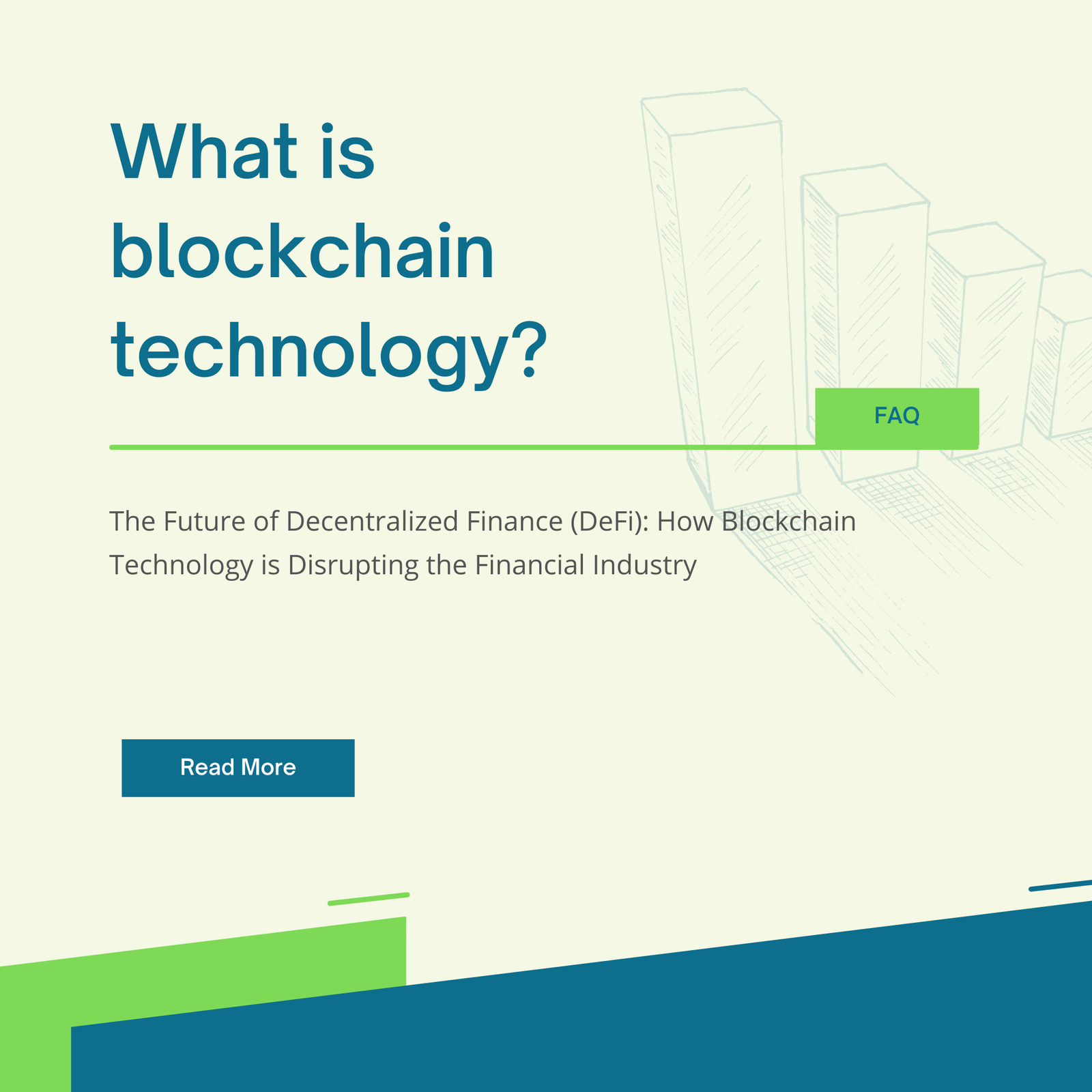In recent years, the world has witnessed a significant shift towards decentralized finance (DeFi), and blockchain technology is at the forefront of this revolution. DeFi refers to a financial system that operates on a decentralized network, offering users a permissionless and transparent financial ecosystem. As traditional financial systems continue to face criticism, blockchain technology is transforming the financial industry by providing a decentralized, trustless, and secure financial ecosystem.
What is DeFi?
DeFi is a movement that seeks to transform traditional financial systems by removing intermediaries and replacing them with blockchain technology. It is a permissionless financial ecosystem that leverages smart contracts to create a decentralized, trustless, and transparent financial ecosystem. The DeFi ecosystem comprises various applications such as decentralized exchanges, lending and borrowing protocols, prediction markets, and insurance platforms, among others.
How Blockchain is Disrupting the Financial Industry
Blockchain technology is disrupting the financial industry in various ways. Here are some of the significant disruptions that blockchain technology is causing:
Trustless Transactions
Blockchain technology provides a trustless financial ecosystem where users do not need to trust intermediaries such as banks to conduct transactions. Blockchain technology uses a consensus mechanism to validate transactions, eliminating the need for intermediaries. This eliminates the need for middlemen, reduces transaction costs, and increases the speed of transactions.
Decentralized Finance
Blockchain technology is transforming the financial industry by providing a decentralized financial ecosystem that is permissionless and transparent. DeFi applications such as decentralized exchanges, lending and borrowing platforms, and prediction markets operate on a decentralized network, providing users with a permissionless and transparent financial ecosystem.
Security and Privacy
Blockchain technology provides a secure and private financial ecosystem by leveraging cryptography to secure transactions. Transactions on the blockchain network are secured using advanced encryption algorithms, making them immutable and tamper-proof. This provides users with a secure and private financial ecosystem.
Programmable Money
Blockchain technology enables the creation of programmable money, which allows for the automation of financial transactions. Smart contracts, which are self-executing contracts, enable the automation of financial transactions, eliminating the need for intermediaries.
The Benefits of Decentralized Finance
Decentralized finance offers various benefits over traditional financial systems. Here are some of the benefits.
Accessibility
DeFi offers a permissionless financial ecosystem that is accessible to anyone with an internet connection. This provides people with access to financial services, irrespective of their location or financial status.
Transparency
DeFi is a transparent financial ecosystem where all transactions are publicly visible. This provides users with transparency and helps to eliminate fraudulent activities.
Cost-Effective
DeFi operates on a decentralized network, eliminating the need for intermediaries. This reduces transaction costs and makes financial services more affordable.
Security
DeFi operates on a decentralized network, making it less susceptible to hacks and cyber-attacks. Transactions on the DeFi network are secured using advanced encryption algorithms, making them tamper-proof and immutable.
Conclusion
Decentralized finance is the future of the financial industry, and blockchain technology is at the forefront of this revolution. The DeFi ecosystem offers a permissionless, transparent, and secure financial ecosystem that is accessible to anyone with an internet connection. Blockchain technology is transforming the financial industry by providing a trustless financial ecosystem that is decentralized and transparent. With the rise of DeFi, we can expect to see a shift towards a more decentralized and equitable financial ecosystem.
Advantages and Disadvantages in the Future
It has gained widespread attention due to its potential to revolutionize various industries, from finance to healthcare, and beyond. In this article, we will discuss the advantages and disadvantages of blockchain technology in the future.
Advantages of Blockchain Technology:
Decentralization: One of the most significant advantages of blockchain technology is its decentralized nature. Unlike traditional systems that are controlled by a central authority, blockchain is distributed across a network of nodes, making it more secure and resilient to attacks.
Transparency: Another significant advantage of blockchain technology is its transparency. All transactions on the blockchain are recorded and can be viewed by anyone on the network.
Security: Blockchain technology is highly secure due to its cryptographic algorithms and decentralized nature. This makes it almost impossible for hackers to manipulate the data on the blockchain.
Efficiency: Blockchain technology is highly efficient as it eliminates the need for intermediaries, thereby reducing transaction costs and increasing speed.
Immutable: Once data is recorded on the blockchain, it cannot be altered, making it highly resistant to tampering or corruption.
Disadvantages of Blockchain Technology:
Scalability: One of the main challenges facing blockchain technology is its scalability. As more users join the network, the number of transactions that can be processed decreases, leading to slower transaction times and higher fees.
Adoption: Blockchain technology is still in its early stages, and many industries are yet to adopt it fully. This lack of adoption can limit its potential and hinder its growth.
Energy consumption: Blockchain technology requires a significant amount of energy to maintain its network, which can be a concern for some environmentalists.
Complexity: Blockchain technology is complex and requires a high level of technical expertise to understand and use effectively. This can limit its adoption by non-technical users.
Regulation: The lack of clear regulation surrounding blockchain technology can be a concern for some businesses, as it creates uncertainty and potential legal issues.
Conclusion:
Blockchain technology has the potential to revolutionize various industries and offer significant benefits such as decentralization, transparency, security, efficiency, and immutability. However, it also has its fair share of challenges, such as scalability, adoption, energy consumption, complexity, and regulation. Despite these challenges, the future of blockchain technology looks promising, and it is expected to play a significant role in shaping the digital economy in the coming years.
Blockchain Technology is legal?
Yes, blockchain technology is legal. Blockchain is a digital ledger technology that enables secure and transparent record-keeping, and it has numerous applications across various industries. While some countries have regulations specific to the use of blockchain technology, in general, there are no laws prohibiting the use of blockchain technology. However, the use of blockchain technology may be subject to certain legal considerations, such as data protection laws, intellectual property laws, and financial regulations, depending on the specific use case and jurisdiction.

